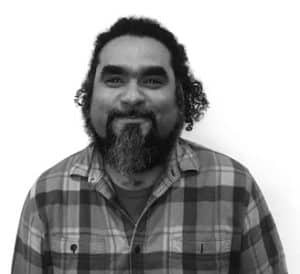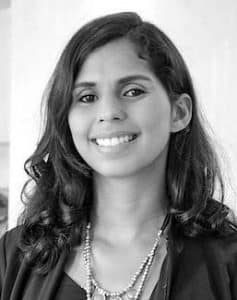Do Less, Do More: Strategies for Equitable Community Engagement
CompetencyWorks Blog
This post originally appeared on the Great Schools Partnership blog on April 15, 2020.
Equitable community engagement—an ongoing and intentional process of building trusting relationships, sharing power, and working collaboratively with all stakeholders toward educational equity—can seem overwhelming at first. When it comes to rethinking a decades-old status quo, it’s hard to know where to begin. Or maybe you’ve been working hard on engaging families, students, and staff and have been frustrated by the results.
The good news: School leaders can pave the way to systems change by considering their own leadership practices and habits.
The shifts below can help you model equitable community engagement, which can set the stage for broader, systemic work in your schools and district. These low-cost, high-impact changes in behavior are an invitation—not to put more on your plate, but rather to consider replacing defaults with more inclusive and reflective patterns and practices. Even if you select just one thing to focus on from the list below, you’ll be on your way to developing a more equitable and engaging school community.
| Do Less | Do More |
| 1. “Why don’t they ever come to things?” | 1. “How can we involve them in developing activities?” |
| 2. Emailing | 2. Face-to-face conversations |
| 3. Explaining why | 3. Asking why |
| 4. Relying on the same folks | 4. Connecting with the outliers |
| 5. Designing and facilitating all the meetings | 5. Building others’ capacity to lead |
| 6. Making assumptions | 6. Looking for your potential blind spots |
| 7. Hosting events at school | 7. Hosting events in the community |
| 8. Marketing and public relations | 8. Inviting personal stories |
| 9. Looking for a quick fix or clear resolution | 9. Sitting in the discomfort |
| 10. Setting the agenda | 10. Finding out what’s important to others |
| 11. Waiting to share something until it’s a finished product | 11. Bringing others in to design, refine, and communicate about a work-in-progress |
| 12. Chalking up someone’s struggles to a lack of personal responsibility | 12. Considering how systems have shaped people’s opportunities and perspectives |
| 13. Getting everyone “on board” | 13. Embracing and exploring disagreement |
| 14.Having all the answers | 14. “I don’t know” or “I’m still learning” |
| 15. Collecting and analyzing survey data behind closed doors | 15. Sharing and making meaning of data with the people surveyed |
Learn More
- GSP Equitable Community Engagement Toolkit
- Engaging the Community
- Deep Community Partnerships Lead to Authentic Project-Based Learning at Oakland USD
 Mo Nuñez is a senior associate with the Great Schools Partnership. He was born in the New York City but spent his childhood between the Dominican Republic and New York City. Mo has 20 years of experience in public education. He has taught across the northeast in public schools, private independent schools, and universities. He has also led and/or designed several successful alternative-education and at-risk-youth programs. Mo was most recently the director of student services and special education at Baxter Academy for Technology and Science; he is also one of the founding partners. Mo’s first language is Spanish. He graduated with a B.A. in sociology and creative writing from Hampshire College, and earned his M.Ed. in teaching and learning from the University of Maine.
Mo Nuñez is a senior associate with the Great Schools Partnership. He was born in the New York City but spent his childhood between the Dominican Republic and New York City. Mo has 20 years of experience in public education. He has taught across the northeast in public schools, private independent schools, and universities. He has also led and/or designed several successful alternative-education and at-risk-youth programs. Mo was most recently the director of student services and special education at Baxter Academy for Technology and Science; he is also one of the founding partners. Mo’s first language is Spanish. He graduated with a B.A. in sociology and creative writing from Hampshire College, and earned his M.Ed. in teaching and learning from the University of Maine.
 Glennys Sánchez is a Senior Associate at Great Schools Partnership. She has more than 10 years of experience as a community activist, K-16 education professional, and community-engaged researcher. Sánchez has devoted her professional career and personal journey to integrating the voices and participation of historically marginalized communities in different spaces ranging from nonprofit leadership, higher education, to community engagement research. In a previous role, Glennys led the family engagement research and knowledge management initiatives of a non-profit organization based in Boston that prepares educators to engage all families in equal partnerships that are essential to student success. Glennys earned an associate’s degree in business from Northern Essex Community College, a B.A. in economics from University of Massachusetts Boston, and a M.Ed. in Community Engagement from Merrimack College. She lives in her adopted home of Lawrence with her partner and three children and often travels to her native Dominican Republic.
Glennys Sánchez is a Senior Associate at Great Schools Partnership. She has more than 10 years of experience as a community activist, K-16 education professional, and community-engaged researcher. Sánchez has devoted her professional career and personal journey to integrating the voices and participation of historically marginalized communities in different spaces ranging from nonprofit leadership, higher education, to community engagement research. In a previous role, Glennys led the family engagement research and knowledge management initiatives of a non-profit organization based in Boston that prepares educators to engage all families in equal partnerships that are essential to student success. Glennys earned an associate’s degree in business from Northern Essex Community College, a B.A. in economics from University of Massachusetts Boston, and a M.Ed. in Community Engagement from Merrimack College. She lives in her adopted home of Lawrence with her partner and three children and often travels to her native Dominican Republic.